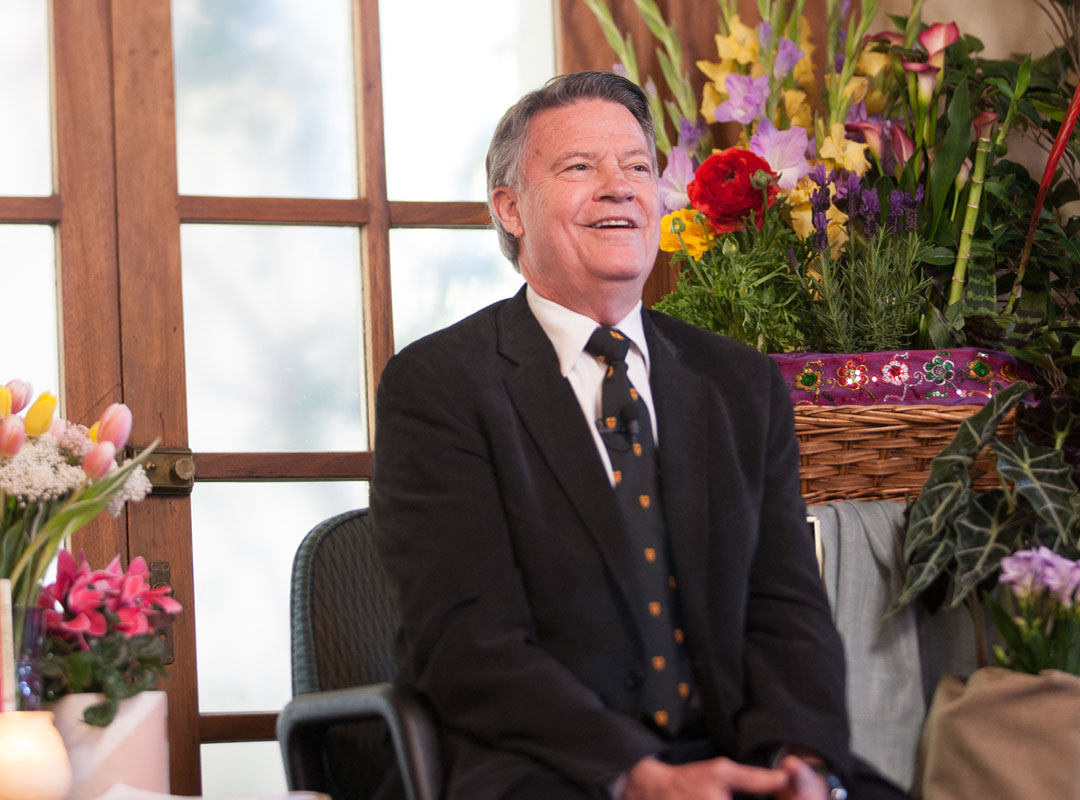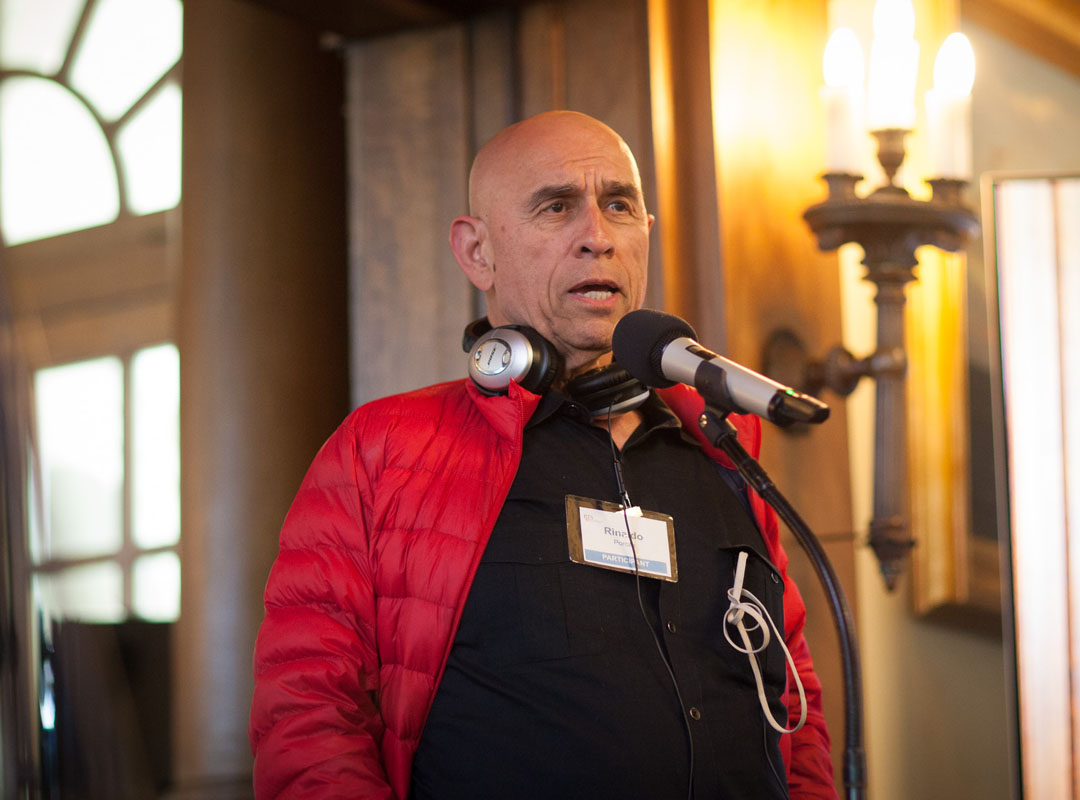This article by John-Roger was first published in the Movement Newspaper, January 1977.
Each one of us has within our consciousness a success mechanism that is–pardon the expression–just dying to succeed. It really wants to get you where you want to go. If you learn to work with it, you’ll bring success into yourself rather readily.
One of the blocks to success is not having much of an understanding of the success process. I’m going to use the word SUCCESS as an acronym to explain some ideas about it.
The first “S” might stand for Sincerity. You must be sincere in where you are going; your values of honesty must be of a high nature, so that you are not out to abuse or misuse anyone and whatever you do will assist them. You do not force your ideas upon anyone, but rather allow them the opportunity to also experience success.
The “U” would stand for Understanding your goal. Not only are you sincere in wanting to reach your goal, but you have the understanding of what it is.
The first “C” would stand for Courage; once you have said that you want to reach a goal and you understand what you want to reach, then, you have the courage to sort out what that goal may be.
The next “C” might stand for Charity. When you reach your goal, it will not just be a selfish end, but there will be charity for all people. Many people can share in the wealth of your success — not necessarily the financial wealth, but the wealth of your consciousness of success.
The “E” stands for Enthusiasm. In the enthusiasm, you keep yourself looking towards your goal. And whenever something that could be considered a barrier gets in your way, you reach into the spiritual law of enthusiasm and lift up into it or around it or under it or through it or whatever it takes to put you back on the path and the goal back within reach.
The next “S” stands for Stability. You must be stable as you move towards your success. Once you say you are going to do something, follow through with it so that it is completed according to what you set out to do; and this will produce stability.
The last “S” stands for Satisfaction. When you reach your goal, you can say, “I am a success,” and feel satisfied. This doesn’t necessarily mean you are going to feel whole or complete; but you are going to say, “I did that and I am satisfied with the result. Now I think I can go on with something else and use what I have learned.”
The process of success is pretty much the same whether you’re going towards smaller goals or bigger ones. And you can get the process down on small successes and then transfer the success mechanism to larger areas. One of the biggest blocks to achieving success is not having a realistic goal. You have to have a goal. We are goal-oriented humans. Much of your depressive state is, “I want to go some place, but I don’t know where. I want to do something, but not what I’m doing. I don’t know what I want to do, and if I sound confused, that’s part of my trouble.” When people do this with me, I say, “You have to set a goal.” They’ll say, ‘I know I don’t have a goal. How do I get a goal?” Ask them what they’d like to do. They may say. “I don’t know.” You’ve been there, I’m sure. We all have.
There are short-term goals and long term goals. A lot of your dissatisfaction and depression comes when you don’t have long-term goals set. But if you don’t, and that area isn’t clear, focus on the short-term goals and move into success on that level. Short-term goals might be washing your clothes and getting things ready for work the next day, going to the market and making sure there’s good food available for your family or just for yourself. It might be studying for three hours — before you take that break and go shoot a few games of pool. These are all goals. You have to know that they are goals. If you say you don’t know what you’re doing, you’ve blocked yourself. You do know what you are doing, but you may not have looked at it for what it is. Goals do not have to be tremendous or meaningful or significant to anyone but yourself. Goals can be very simple and very straightforward — and they can bring you a lot of happiness and satisfaction and fulfillment, when you look at them for what they are.
Women who experience depression or dissatisfaction over their roles of “housewife” or “homemaker” have not identified what they do as being worthwhile goals. They have opinion wrapped up with fact. The goal of keeping the house clean and getting dinner on the table is every bit as valid as selling $100,000 worth of advertising to the company’s biggest client. It is only “opinion” that makes one appear more important than the other. There is a story told about a man who lost $200,000, and it totally wiped him out. He was talking with a friend and said, “I am ruined. I am broke. I am disgraced.” The friend didn’t quite understand all those words and he said, “Well, I understand that you are broke; that’s a fact. But that you are ruined and disgraced is your opinion.” And that attitude destroys all the excuses for failure. The man who had lost the money took a good look at himself, went into a different business, and made more money than he ever had. And he was happier with the new job. Way too often, it’s your opinion about what is going on that is the problem–not what is going on.
People come to me and say, “I am so lonely, J-R. What can I do about it?” I say, “Tell me what is going on. What are the facts?” They say, “I go to work, I do my work. I don’t bother anyone. No one bothers me. I come home, go into the apartment, fix dinner, sit around and watch TV all by myself, day in and day out. And I’m just so lonely.” I say, “Now, tell me what is going on there.” They say, “I go to work…” I say, “I got all that, but isn’t the factual statement that you are alone.” They say, “Yes.” I say, “And it is your interpretation of that that says you’re lonely. But you could have four people in your apartment with you and still be lonely.” I think everyone has experienced that. You can say that you are alone, which is fact, but you can still be happy while you are alone. You can still experience success.
When you have set a goal for yourself — whether it’s short term or long — envision yourself getting there. Use your creative imagination and see yourself attaining your goal. That’s a good way to stimulate the success mechanism. That’s the way to prime the pump. Hold the image of your success and your completion in front of you — and then just keep moving forward. It will become obvious, moment to moment, what must be done next. And all you have to do is hold that completed image of success as your direction and do the next obvious thing to be done. That’s living in the now. And that’s success.

















